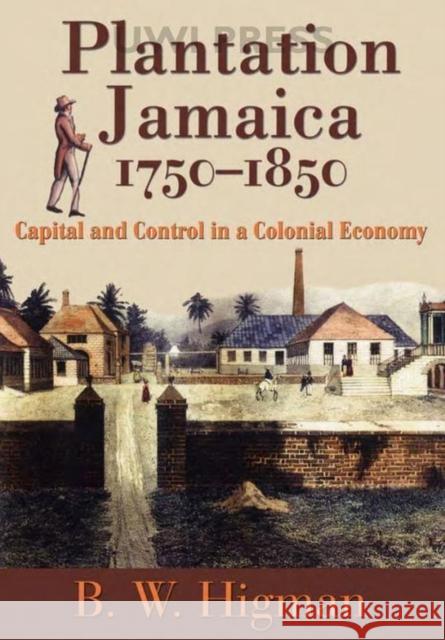Plantation Jamaica, 1750-1850: Capital and Control in a Colonial Economy » książka
Plantation Jamaica, 1750-1850: Capital and Control in a Colonial Economy
ISBN-13: 9789766401658 / Angielski / Twarda / 2008 / 386 str.
Plantation Jamaica analyses the important but neglected role of the attorneys who managed estates, chiefly for absentee proprietors, and assesses their efficiency and impact on Jamaica during slavery and freedom. Meticulous research based on a variety of sources, including the attorney's letters, plantation papers and slave registration records, provides rich quantitative and literary data describing the attorney's role, status, range of activities and demographic characteristics. Higman charts both the extent of absentee ownership and the complex structure of the managerial hierarchy that stretched across the Atlantic. Detailed case studies compare the attorney Simon Taylor's management of Golden Grove Estate in the decade before the American Revolution and Isaac Jackson's control of Montpelier in the years immediately following the abolition of slavery. These examples provide a wealth of information about plantation life and labour, technology, trade, investments and profits. Higman also makes a unique contribution by investigating and describing several topics previously neglected, including the postal service, the history of accounting and the role of attorneys in the British Isles. The writing style is clear, persuasive and elegant, which makes the work accessible to Atlantic and Caribbean historians and to general readers as well. This book is critical in the ongoing historiographical debate about the impact of absenteeism in Jamaica, Great Britain's largest sugar-exporting colony. The sophisticated economic and social analysis reveals how managers, overseers and owners constructed an efficient value system, which permitted ethical behavior among themselves yet perpetuated thebrutal exploitation of plantation workers, enslaved and free.











